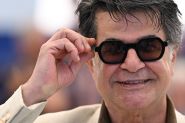
©US musician Don Henley of the band "Eagles" arrives at the courtroom after lunch break at Manhattan Criminal Court – Photo by Yuki Iwamura /AFP
Eagles frontman Don Henley embarks on a legal battle against three men accused of attempting to sell stolen notes from the iconic 1976 album Hotel California.
In a courtroom drama that sounds like the plot of a Hollywood movie, Eagles frontman Don Henley took the stand to testify against three men accused of trying to sell what he claims are stolen notebooks filled with the band’s original notes for their seminal album, Hotel California. The case, which opened on Monday, captured the attention of music fans and legal observers alike, shedding light on the shadowy world of music memorabilia and the value of handwritten notes from one of the most successful albums in rock history.
The notebooks in question, containing around 100 pages of lyrics, chord progressions, and other musings from the Eagles during the creation of Hotel California, represent a unique insight into the creative process behind the album that sold millions of copies worldwide since its release in 1976. Henley, now 76 and embroiled in a farewell world tour, described the notebooks’ contents as “some of the stupid things we wrote down” in the journey to finalizing tracks that would become rock anthems, including the title track Hotel California.
“They (were) not supposed to be seen,” Henley stated emphatically in court, donning a suit and tie for the occasion. The dispute centers around the legitimacy of the notebooks’ acquisition by the defendants: Craig Inciardi and Edward Kosinski, both charged with criminal possession of stolen goods, and Glenn Horowitz, facing a charge of attempted criminal possession. All three men, collectors with a keen interest in music history, pleaded not guilty, maintaining that they legally acquired the disputed papers.
The origins of the controversy trace back to the late 1970s when an author, tasked by the band to pen its biography, was given the notes and subsequently never returned them. Henley’s portrayal of the incident leaves no room for doubt about his feelings, “I was buying my property back,” he remarked, after having to repurchase some of the pages online for $8,500. This purchase, made out of necessity, was described by Henley as the “most expedient … most practical” method to reclaim the lyrics, emblematic of his broader struggle to regain control over the band’s intellectual property.
The trial revealed not just the complexities of copyright and ownership in the music industry, but also the lengths to which artists must sometimes go to protect their legacy. Henley’s case against the defendants is not merely about the physical notes themselves but what they represent: the blood, sweat and tears poured into creating an album that defined a generation.
As the trial unfolds over several days, it promises to delve deeper into the murky waters of music memorabilia trading, the ethical considerations of selling and owning such items, and the legal protections afforded to artists over their creative outputs. “I was already extorted once,” Henley declared, referencing his forced purchase of the notes and setting the stage for a legal showdown that will test the boundaries of copyright law and the sanctity of artistic creation.
For Henley and the Eagles, the trial is more than just a legal battle; it’s a fight to preserve the integrity of their work and a statement against the exploitation of artists’ rights. As fans and observers watch closely, the outcome of this case could set important precedents for how music history is preserved, traded and valued in the years to come.
With AFP
Read more



Comments